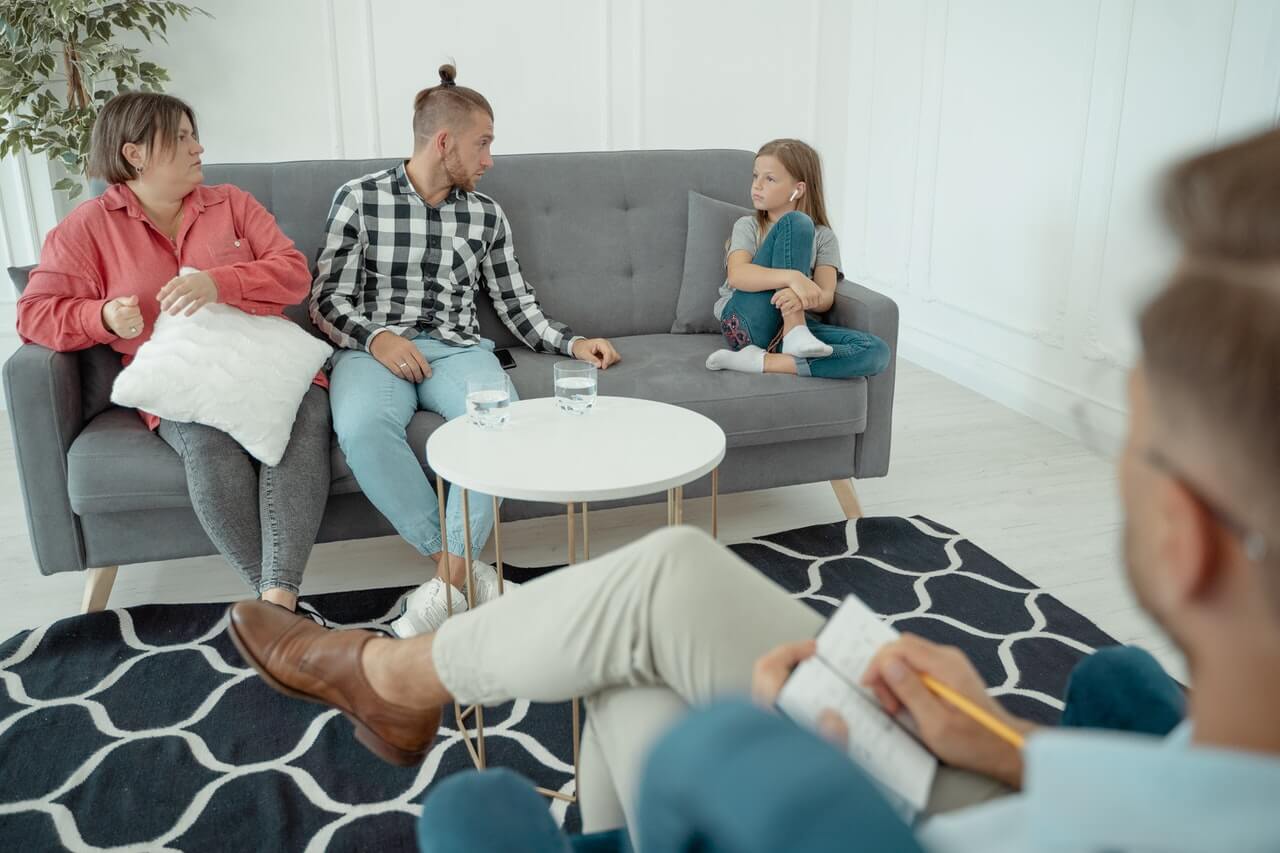Family Therapy: How to decide if Family Counselling is right for you
A family member is anyone you decide to call family. They do not need to be a blood relation to be considered family. Family can even be close friends with whom you have developed a special bond.
Since societies have historically formed around family structure, we have evolved to function in units. Regardless of the dynamics of any given individual family, it is the support and connection that matters most. As social creatures, the key is to thrive together.
But even the healthiest of families will experience disagreements, stress, and conflict. If you’re able to work through it together, that’s great, but at times you need additional support and that’s where family therapy comes in.
What is family therapy?
Family therapy is a form of therapy that focuses on working together with families to cope with challenging times, resolve conflicts, improve communication, and ultimately strengthen relationships.
Family therapy is typically carried out with all family members present during every session, but individuals may also work with the therapist in one-on-one sessions. It depends on the individual family structure. The therapist will work with your family to develop an individualized treatment plan.
What are the benefits of family therapy?
Although every situation and the reasoning behind seeking therapy are unique, there are a lot of overarching benefits you can reap from family counselling.
For example, improvements in communication. Many people during challenging times struggle to communicate effectively. People believe that if they are speaking openly, they are inherently communicating well, but that is generally not the case. Communicating well takes a lot of work and effort, and therapy is a great place to learn those skills.
Another example is enhanced empathy/compassion. During the conflict, people tend to focus on themselves. How they feel and how they were impacted, leaving very little room for understanding and compassion. That’s where family therapy can be very beneficial. In a safe space, your therapist will work with you to help you gain empathy for one another.
Overall, you work through individual issues to improve your relationships with your loved ones.
How do you know if you need family therapy?
There is no right or wrong reason for seeking family therapy. A therapist might even argue that even the healthiest families would benefit from family therapy. After all, everyone can benefit from learning communication skills, conflict resolution skills, building resilience, and strengthening relational bonds.
That being said, something usually happens to lead people into family therapy. For example, grief and loss. Coping with a loss is not easy, especially if everyone in the family is going through it at the same time. It can be challenging to support one another when each person is struggling. Therefore, therapy can be that support system during a tough time. A therapist can work with your family to help you process the pain and move towards it.
Another example is children. Since children go through so many stages in such a short span of time, it can be really hard to manage everything. At some point, it becomes too much, leading people into therapy. That would be beneficial because a therapist can help you problem-solve together in a safe space, and work with you to manage the challenges you may be facing with your children.
Other times, a specific issue might be a symptom of broader concerns at play. For example, arguing about children might just avoid dealing with a lack of intimacy. A qualified therapist will be able to uncover the origins of the conflict and provide a treatment plan accordingly.
What is the role of a therapist in family therapy?
A therapist will act as a compassionate and unbiased facilitator. They create space for families to communicate with each other and assist as needed. They help clarify any misunderstandings, help each member understand each other, and bring about resolution.
Throughout the process, a family therapist will take on many roles. For example, at times they might be a facilitator or an interpreter, and at other times, they may be an activator or challenger. They will work with you every step of the way and provide the necessary assistance needed for successful outcomes.
If you’re currently experiencing conflict or you’d like to strengthen your relationship with your loved ones, it is a good idea to reach out and speak to a few family therapists. Take the time to discuss your thoughts and feelings, and a qualified professional will provide the right guidance.
Get Help
Overcome your relationship issues and book a free online consultation with one of our top rated therapists
Essential Reading about Relationship Issues
Free Mental Health Tests
Relationship Counsellors Available Now
QLD
Psychologist
If you're feeling overwhelmed, anxious, stuck in your head, or disconnected from yourself, you're not alone. I'm Casey Barnard, a Psychologist and Health Coach who helps ...More
QLD
Psychologist
I am a psychologist with general registration, who houses an array of life and professional experience in counselling and psychology across the lifespan. I am a massive e...More
QLD
Psychologist
Hello! I am an experienced therapist with expertise to support you in overcoming challenges and reaching your goals and potential. I'd love to work with you or your fam...More








